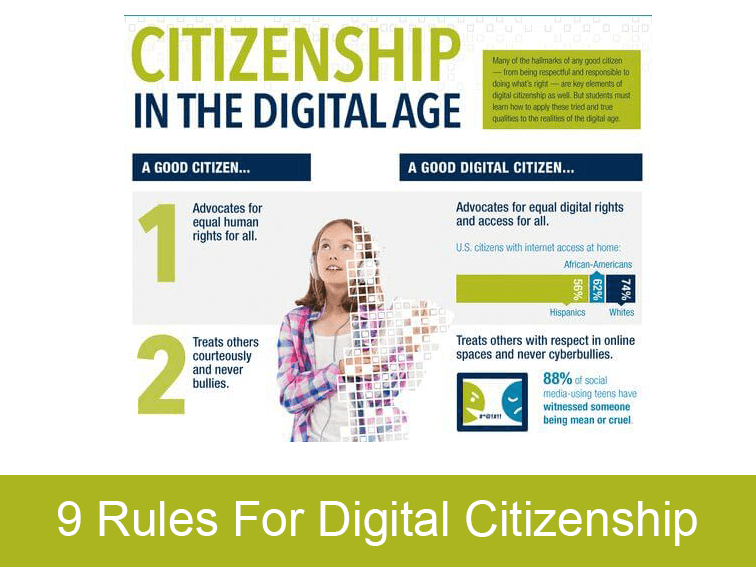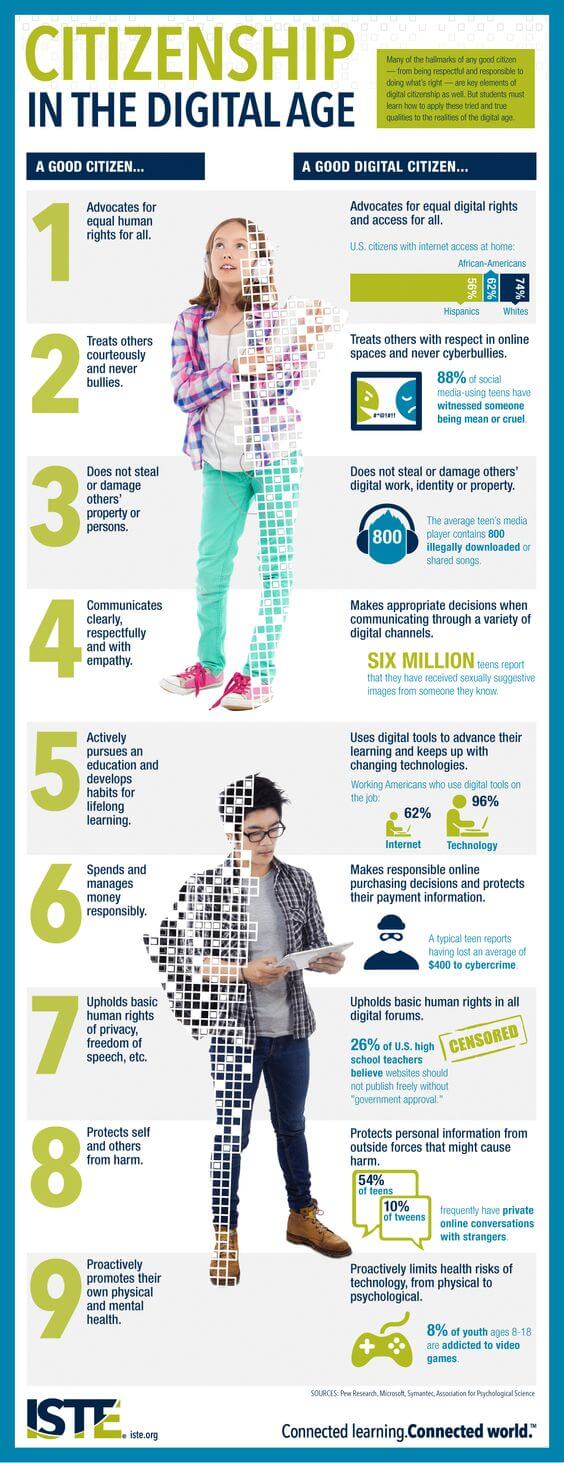
What Are The Essential Rules For Digital Citizenship?
by TeachThought Staff
Are there ‘rules’ for digital citizenship? And how are the unique from non-digital, ‘local’ citizenship?
These are the questions the fine folks at ISTE tackled in the follow infographic that seeks to clarify ‘norms’ for citizenship in the digital age. We’ve offered a definition for digital citizenship in the past, and this graphic takes that idea and adds general advice for what this might look like in action. ISTE explains,
“Many of the hallmarks of any good citizen–from being respectful and responsible to doing what’s right–are key elements of digital citizenship as well. But students must learn how to apply these tried and true qualities to the realities of the digital age.” While some of the rules may be a bit over-general (7. A good citizen upholds basic human rights…) or curious in topic (6. A good citizen spends and manages money responsibly…), as practical examples of a vague idea, they work well.
As the graphic indicates, digital citizenship is a specific kind of general citizenship–citizenship extended into digital spaces. A good person using common sense is a good person using common sense online or off, yes? But websites and social media channels are sufficiently unique to offer different challenges (e.g., anonymity) and opportunities (e.g., scale) compared to ‘real life’ that specifically digital thinking is important.
You can check out ISTE’s original post sharing this graphic on their site.
Anything you’d add to the list?
9 Rules For Digital Citizenship
- A good citizen advocates for equal human rights for all.
- A good citizen treats others courteously and never bullies.
- A good citizen does not damage or others’ property or person.
- A good citizen communicates clearly, respectfully, and with empathy.
- A good citizen actively pursues an education and develops habits for lifelong learning.
- A good citizen spends and manages money responsibly.
- A good citizen upholds basic human rights of privacy, freedom of speech, etc.
- A good citizen protects self and others from harm.
- A good citizen proactively promotes their own physical and mental health.

